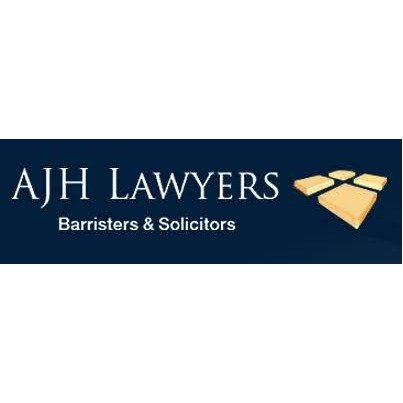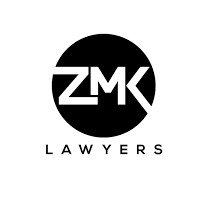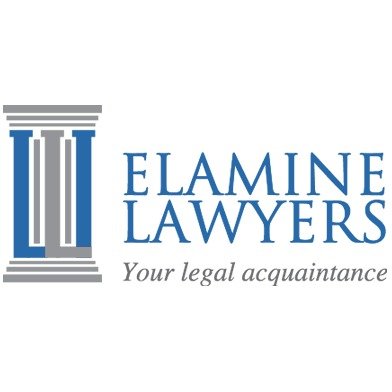Best Water Law Lawyers in Melbourne
Share your needs with us, get contacted by law firms.
Free. Takes 2 min.
List of the best lawyers in Melbourne, Australia
About Water Law in Melbourne, Australia
Water Law in Melbourne, Australia governs the ownership, use, allocation, conservation, and management of water resources. These laws regulate how individuals, businesses, and government bodies use water from rivers, lakes, groundwater, stormwater, and recycled water. Melbourne's growing population and changing climate have increased the importance of sustainable water management and legal compliance to ensure everyone has fair access to water while protecting the environment.
Why You May Need a Lawyer
Melbourne residents may need a lawyer specialising in Water Law in several situations. Disputes often arise between neighbours, landowners, or businesses over water usage, boundaries, or water rights. You may also require legal assistance if you are facing enforcement action from local authorities regarding illegal water usage, pollution, or unauthorised development near waterways. Developers seeking permits for construction projects, farmers needing irrigation rights, and anyone affected by changes to water catchment rules can benefit from legal advice to protect their interests and ensure compliance with regulations.
Local Laws Overview
Water Law in Melbourne is shaped by Victorian state legislation, most notably the Water Act 1989 (VIC) and the Planning and Environment Act 1987 (VIC). These Acts set the framework for licensing, water entitlements, drainage, floodplain management, and waterway protection. Local laws regulate stormwater management, pollution control, and land development near designated water catchments. Melbourne’s water supply is also managed by regional water authorities, which enforce specific rules regarding usage, restrictions, and infrastructure. Recent reforms have focused on sustainability, water recycling, and integrated catchment management.
Frequently Asked Questions
What is a water entitlement?
A water entitlement is a legal right to access a specific amount of water from a regulated source, such as a river or reservoir. These are issued and managed under Victorian water legislation.
Can I take water from a creek running through my property?
Generally, you need a licence to extract water from a creek or natural waterway, even if it is on your land. Small domestic or stock use may have limited exemptions, but these are regulated under the Water Act.
How do water restrictions affect me?
Water restrictions in Melbourne vary depending on drought and supply levels. These can limit the times and ways you can use water for gardens, washing vehicles, or filling pools. Non-compliance can lead to fines.
What are my rights if a neighbour diverts water onto my property?
If water is unlawfully diverted onto your land causing damage, you may have a legal claim under nuisance or trespass laws. Seek advice from a Water Law specialist to assess your case.
Who oversees water management in Melbourne?
Water management involves multiple bodies including Melbourne Water, local councils, and the Victorian Department of Energy, Environment and Climate Action. Each has specific areas of responsibility.
Can I build near a natural waterway?
You will usually need planning permission to build near creeks, rivers, or wetlands, and you must comply with setback and environmental protection rules. Local councils and Melbourne Water assess these applications.
How does the law protect water quality?
Victoria’s laws prohibit the pollution of water sources and set strict penalties for illegal discharge of waste and contaminants. You may be liable for cleanup costs and legal penalties if found in breach.
What happens if I use more water than my licensed allocation?
Exceeding your licensed allocation can result in enforcement actions, including fines, licence suspension, or cancellation. Water authorities monitor usage and compliance closely.
Are stormwater and sewage covered under Water Law?
Yes, the management and discharge of stormwater and sewage are regulated by local laws and water authorities to prevent flooding and pollution. Special rules apply to development and infrastructure projects.
How do I resolve a dispute over water rights?
Disputes can often be resolved through negotiation or mediation, but legal action may be necessary in complex cases. A Water Law lawyer can represent your interests and help you reach a fair outcome.
Additional Resources
For further assistance and official information, you may wish to contact or visit:
- Melbourne Water - manages water supply, drainage, and waterways
- Victorian Department of Energy, Environment and Climate Action - oversees water policy and legislation
- Your local council - provides permits and assistance for water-related planning and developments
- Victorian Civil and Administrative Tribunal (VCAT) - handles water law disputes and appeals
- Community legal centres specialising in environmental or planning law issues
Next Steps
If you need legal assistance regarding Water Law in Melbourne, start by gathering any relevant documents, such as water licences, correspondence with authorities, and maps or plans. Clearly identify the issue you are facing and consider what outcome you want. Then, consult a lawyer with experience in Water Law for advice tailored to your situation. Many offer an initial consultation to assess your case. You may also be eligible for free or low-cost advice from a community legal centre or government agency. Acting early increases your chances of resolving the issue efficiently and protecting your rights.
Lawzana helps you find the best lawyers and law firms in Melbourne through a curated and pre-screened list of qualified legal professionals. Our platform offers rankings and detailed profiles of attorneys and law firms, allowing you to compare based on practice areas, including Water Law, experience, and client feedback.
Each profile includes a description of the firm's areas of practice, client reviews, team members and partners, year of establishment, spoken languages, office locations, contact information, social media presence, and any published articles or resources. Most firms on our platform speak English and are experienced in both local and international legal matters.
Get a quote from top-rated law firms in Melbourne, Australia — quickly, securely, and without unnecessary hassle.
Disclaimer:
The information provided on this page is for general informational purposes only and does not constitute legal advice. While we strive to ensure the accuracy and relevance of the content, legal information may change over time, and interpretations of the law can vary. You should always consult with a qualified legal professional for advice specific to your situation.
We disclaim all liability for actions taken or not taken based on the content of this page. If you believe any information is incorrect or outdated, please contact us, and we will review and update it where appropriate.












